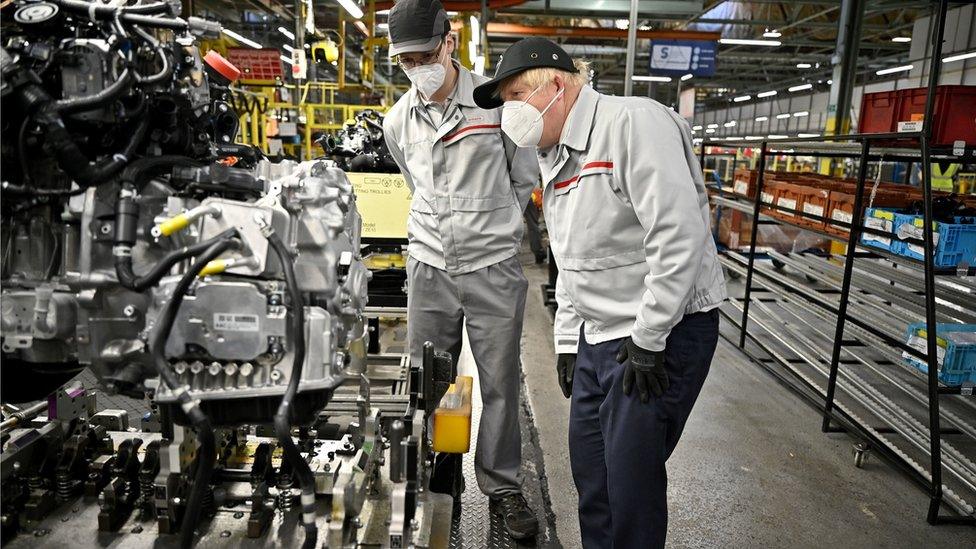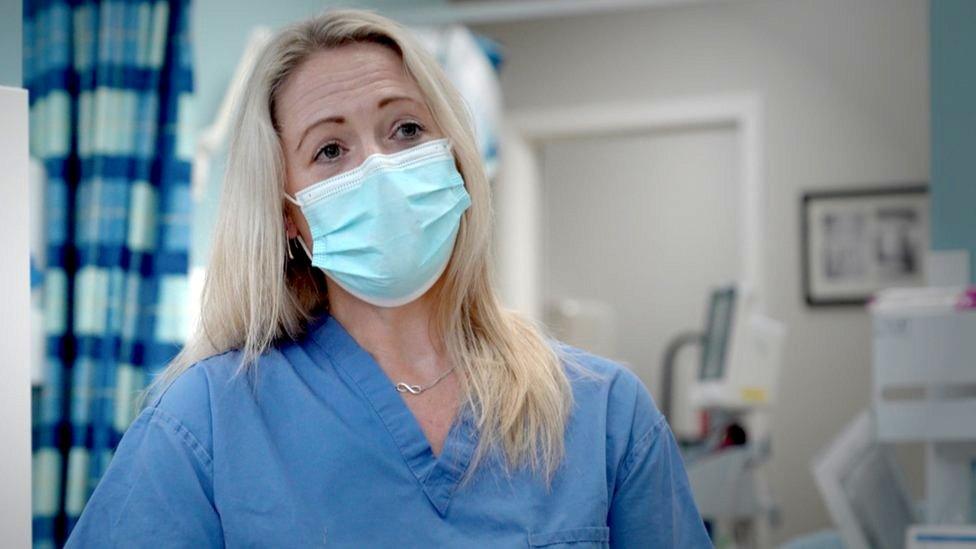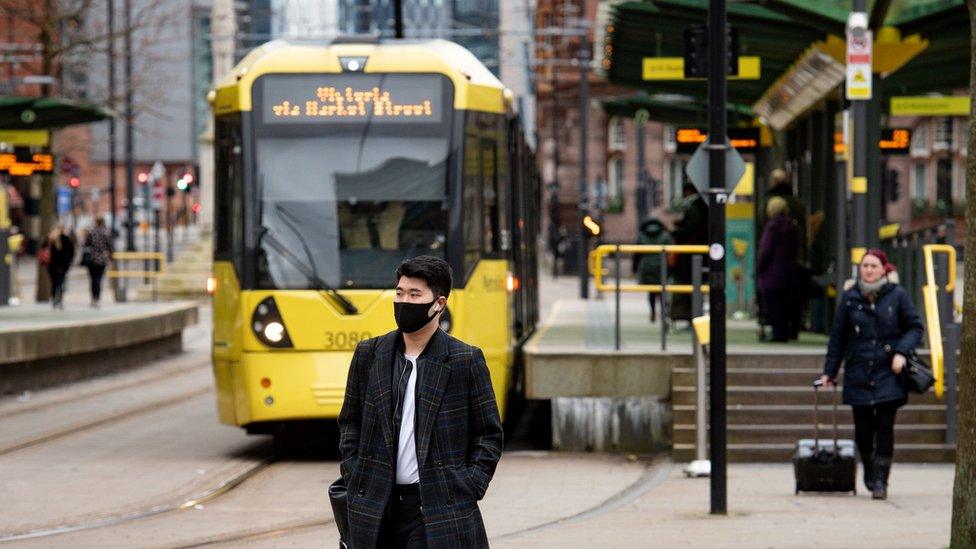Covid: Hundreds of Nissan staff in Sunderland self-isolating
- Published

Prime Minister Boris Johnson visited Nissan earlier this month when it was announced thousands of jobs were being created there
Up to 900 staff at Nissan's car plant in Sunderland are self-isolating due to "close contact" with Covid-19, the BBC understands.
The hundreds of absences come amid a surge in cases of the Delta variant of the virus in the north-east of England.
The company, which employs 6,000 people at the site, would not confirm the numbers affected but said production in "certain areas" had been "adjusted".
A spokesman said Nissan was confident in its "rigorous safety controls".
The company would not disclose the number of workers sent home beyond confirming it was in the hundreds and said the figure of 700, as reported in the Financial Times, external, was inaccurate.
The Japanese car maker said the wellbeing of its workforce was its priority.
'Major challenges'
Steve Bush, North East representative for Unite, citied issues with the NHS Covid-19 app.
The union warned factories were on the "verge of shutting" due to the amount of people being pinged to self-isolate for 10 days, which he said was causing "havoc" on the production line.
"This isn't just Nissan in isolation, I'm dealing with a range of car factories," he said.
"It's fairly accurate that story, it's really hitting home.
"There have been major challenges, these challenges haven't just come about in the last week or so, this has been ongoing for a number of weeks now."
Meanwhile, the director of public health for the North East and Yorkshire, Prof Peter Kelly, said he suspected cases in the North East would "be pretty much double" the region's previous peak "within a few days".
South Tyneside, which borders Sunderland and Gateshead, continues to have the highest rate with 2,111 new cases in the seven days to 10 July - the equivalent of 1,398 per 100,000 people, according to government data.
Sunderland has the second highest and Hartlepool has the third.
The North East and Cumbria currently make up the top five council areas with the biggest week-on-week rises - South Tyneside, Middlesbrough, Hartlepool, Allerdale and Redcar and Cleveland.
'Potent mix'
Prof Kelly urged people to continue wearing face coverings on public transport to protect others, when restrictions lift on Monday.
"I am concerned but I am hearted by the success of the vaccine and that whilst we are seeing increase in hospital numbers, it's at a much lower rate than we previously had," he said.
He added the surge was due to the Delta variant, which was first detected in India.
"It has also come at a time when we have been moving away from some of the restrictions and rules of lockdown we have had," he said.
"So the timing of the Delta variant, which is more infectious, coinciding with more people mixing and moving around, has led to more opportunities for the virus to go from person to person.
"That's why we have had this very rapid increase in growth, especially the younger population, because also they have not had the chance yet to be fully vaccinated.
"All those things together to make this potent mix at the moment of a rapidly increasing, spreading virus."

Follow BBC North East & Cumbria on Twitter, external, Facebook, external and Instagram, external. Send your story ideas to northeastandcumbria@bbc.co.uk, external.
Related topics
- Published14 July 2021

- Published14 July 2021

- Published9 July 2021
